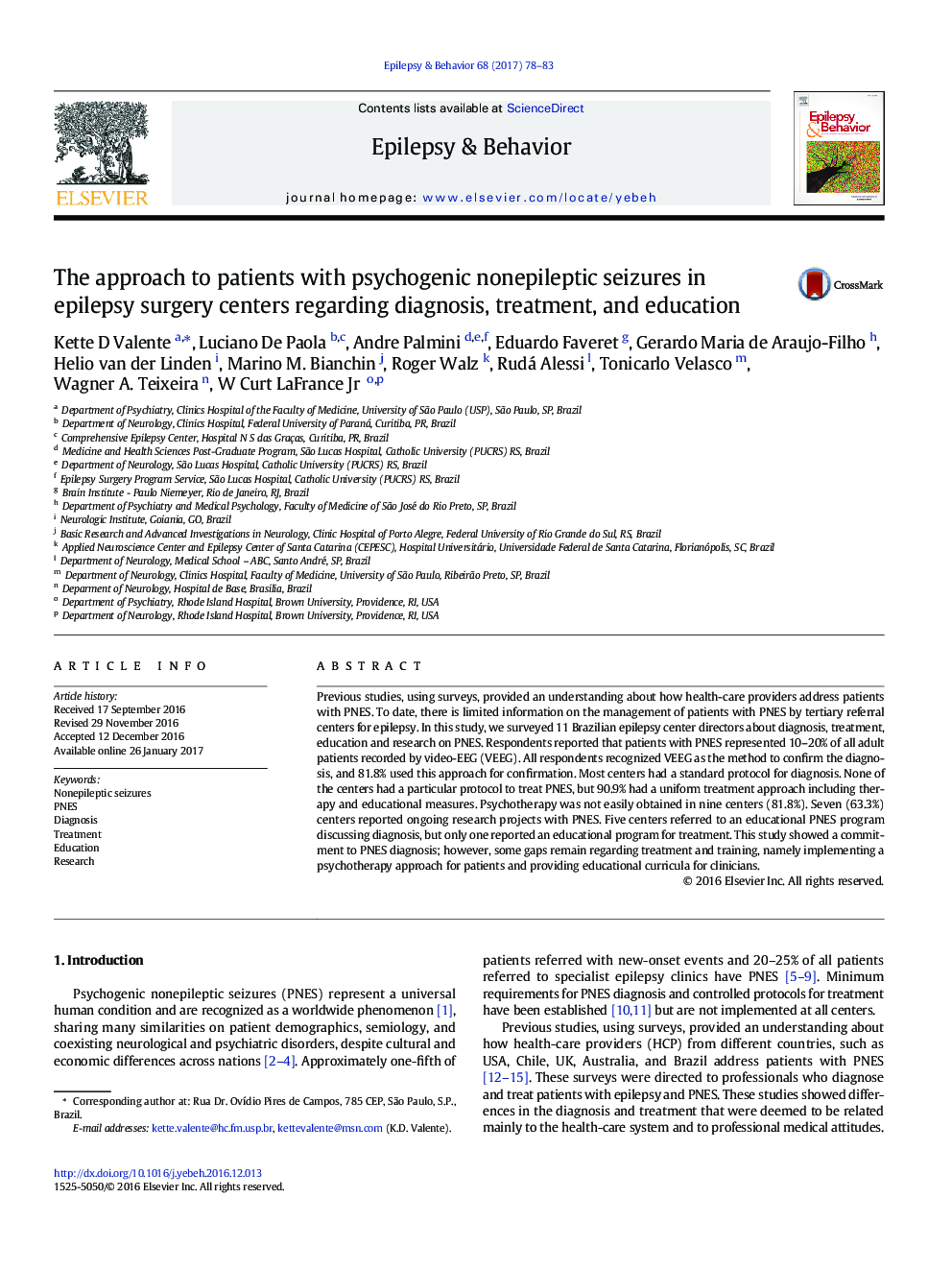| Article ID | Journal | Published Year | Pages | File Type |
|---|---|---|---|---|
| 5628044 | Epilepsy & Behavior | 2017 | 6 Pages |
â¢There are limited data on how tertiary referral centers for epilepsy manage patients with PNES.â¢Many Brazilian tertiary care centers for epilepsy have a protocol-based approach to PNES diagnosis and treatment.â¢In most centers, psychotherapy was not easily obtained for PNES treatment.â¢Educational measures for residents and fellows represent an education gap to be filled.
Previous studies, using surveys, provided an understanding about how health-care providers address patients with PNES. To date, there is limited information on the management of patients with PNES by tertiary referral centers for epilepsy. In this study, we surveyed 11 Brazilian epilepsy center directors about diagnosis, treatment, education and research on PNES. Respondents reported that patients with PNES represented 10-20% of all adult patients recorded by video-EEG (VEEG). All respondents recognized VEEG as the method to confirm the diagnosis, and 81.8% used this approach for confirmation. Most centers had a standard protocol for diagnosis. None of the centers had a particular protocol to treat PNES, but 90.9% had a uniform treatment approach including therapy and educational measures. Psychotherapy was not easily obtained in nine centers (81.8%). Seven (63.3%) centers reported ongoing research projects with PNES. Five centers referred to an educational PNES program discussing diagnosis, but only one reported an educational program for treatment. This study showed a commitment to PNES diagnosis; however, some gaps remain regarding treatment and training, namely implementing a psychotherapy approach for patients and providing educational curricula for clinicians.
